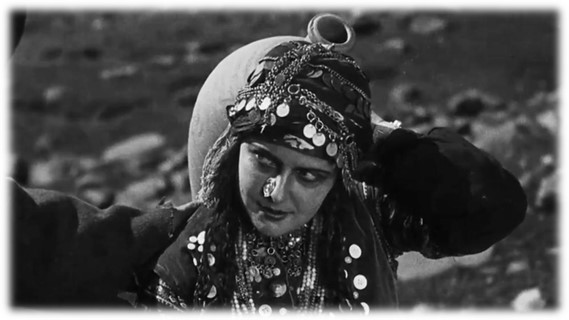Read the third part of this article here
The previous parts of this article included a summary of the history of the feminist movement and cinema, the role of Kurdish women in socio-political activities, and the analysis and definition of their role in the works of Kurdish filmmakers. At the end of this article, we continue to introduce several other works in which Kurdish women play a role.
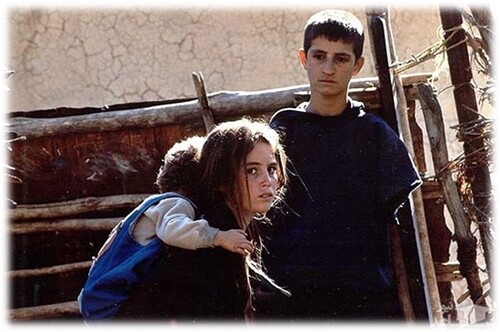
Turtles Can Fly, Bahman Ghobadi, 2004
"Turtles Can Fly" is a 2004 film directed by Bahman Ghobadi. The story shows us the world of children of war who have been deprived of their childhood. They are not child in their speech, thoughts, or actions. Agrin (Awaz Latif) is one of the main actors in the film; she is a young girl who has been a victim of war. The Ba'athist soldiers rape Agrin during Saddam's attack on Halabja. She becomes a mother at an early age. We will see the mental pressures of Agrin. War and rape have turned the past into a moth and have taken away the future. Agrin keeps thinking about going, a going that might save her from all this pain, but in the end, the only salvation she knows is suicide!
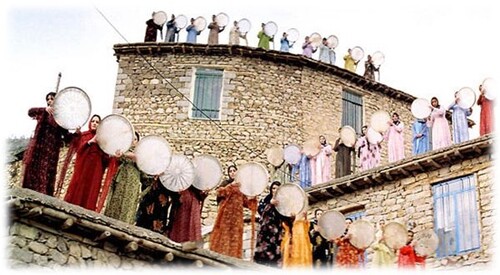
Half Moon, Bahman Ghobadi
And we see again in Ghobadi's Half Moon that women do not play a marginal role. Women are the saviors, and Heshu (Hedieh Tehrani) and Niwamang (Golshifteh Farahani) are all the hopes of Mamo (Ismail Ghafari) and the group. A group that is going to give a concert in the southern part of Kurdistan. The film shows the lack of women's voices in a system dominated by Islam and masculinity. Women whose voices have been banned, who have been oppressed!
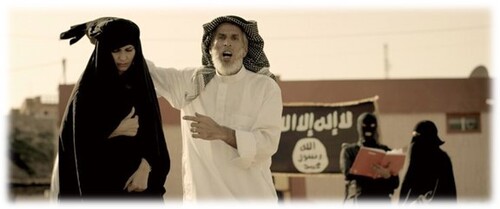
The Dark Wind, Hussein Hassan, 2016
"The Dark Wind" is a 2016 film directed by Hussein Hassan. This film tries to bring the tragedy of the 73rd Order of the Yazidis to the cinema. In 2014, the terrorist organization ISIS attacked Shangal (Sinjar) and took about 5000 Yazidi girls and women as spoils of war and turned them into sex slaves. The Dark Wind is the story of only one of the thousands of women held hostage. Pero (Diman Zandi) is the girl who has been sold and raped and her life turned into a moth that will never escape. Reko (Reksh Shahbaz) is Peru's lover and fiancée. They planned to get married, but the war won't let them. Reko tries his best to find his love. Women fighters who have played a significant role in the rescue of Yazidi women have rescued a number of women. Reko goes to the western part of Kurdistan to find Peru to find out if Peru is one of them. He finds her, but Peru is no longer the smiling girl. They return to the southern part of Kurdistan together and this is the beginning of the misery of a tarnished honor!
In a patriarchal society, a woman's value depends on a hymen, and its loss willing (without marriage) or forced, has the same consequences. She becomes a defective woman, like a second-hand good that has already been used and no longer accepted by any man. Despite all the misery, Peru must also endure the psychological pressures of this system. Pressures that have led to the suicide of most returned Yazidi women. In fact, in a patriarchal system, it is not only women who are victims, men are also victims of patriarchal thought. Reko doesn't think like his father. Nothing has changed for him. Peru is still his lover and he insists on marrying her, but his father has sworn not to let such a woman and pregnant bride come to his house. Peru's father, meanwhile, is unclear whether he is happy with his daughter's rescue. At the same time, he is confused by what society says and does not know how to behave.
I will end this article by looking at two of the works of a Kurdish female director named Qudrat Gunesh, most of whose works deal with women and Kurdish society who never give up despite oppression (by the system, society, or family) and nothing has stopped them from fighting for the people and the country.

Leyla Zana The Evangel of a Nation, 2002
"Leyla Zana the Evangel of a Nation" is a product of 2002. The documentary tells the story of Leyla Zana's political struggle and the ability and courage of this tireless woman who sacrifices herself for her people and country. She goes on stage and teaches hundreds of Kurdish men and women the lesson of freedom, the lesson of resistance, and the struggle to achieve our rights.
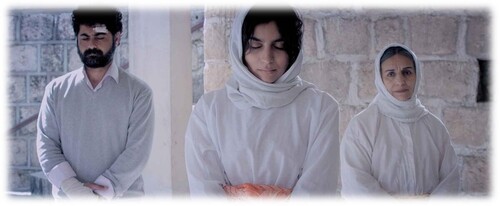
The Insulted Women, 2009
The 2009 documentary, The Insulted Women, tells the story of two Kurdish women who have been forced to flee abroad due to the torture of the Turkish regime. Hozanjane is one of these women. She is a singer and started singing as an artist at the age of six. She was forced into marriage at the age of eleven and later could to escape the oppression. But to where? How can a Kurdish female singer who sings love songs in Kurdish how will be treated in the fascist regime of Turkey? This documentary tells the story of Jane and Nazli Top. They talk about torture and aggression by the Turkish system. They talk about their wounds that will leave scars on their bodies and souls forever.
The last word
Despite all the shortcomings and obstacles, Kurdish cinema has been able to define itself to some extent, in its demands, and the messages it wants to convey. Although Kurdish directors or Kurdish cinema, in general, do not yet have a national platform that is supported from all sides, they have tried to cover Kurdish tragedies and sufferings, Kurdish problems, and situations in many ways. One of these problems is the issue of women. Fortunately, if feminist cinema emerged in Western countries after decades of existence, Kurdish cinema has had a feminist template from the beginning. The above films were only part of Kurdish cinema in which we rarely see women as commodities. The role of women in Kurdish cinema is not a beautiful doll to be under a male gaze, as Malvi points out, but herself. But these are not enough to have a cinema with an equality message. Discussing women and their problems should not be limited to matters of motherhood, love, honor, and war. At the same time, we need the role of women who become idols in science, economy, philosophy, politics, literature, art, cinema, and all the fields in which women have had the least role. Kurdish women need a platform in which they can recognize themselves as independent individuals. They should also be made aware of their rights and encouraged to achieve them. For this purpose, I believe that cinema is the best tool and platform that can succeed in fulfilling these desires.
Sources:
- Feminism and Cinema, Cheko Rojhelat, Tishk Magazine 57
- A Hundred Women, Women and Cinema, From Film Production to Gender Equality Movement in Cinema, BBC Persian
- Feminist Film Criticism (hawzah.net)
- The film "Zare" in the idol of national identity
- Laura Mulvey, Visual Pleasure.pdf (amherst.edu)
- #Pispor (2) - Ekrem Yildiz: Yekem Kurdish film "Nan u Azadî"
- Kurdish Yönetmen Kudret Güneş ile Rozerin Urucu Condition: – MEZOPOTAMYA HABER
- Kudret Güneş (kameraarkasi.org)

